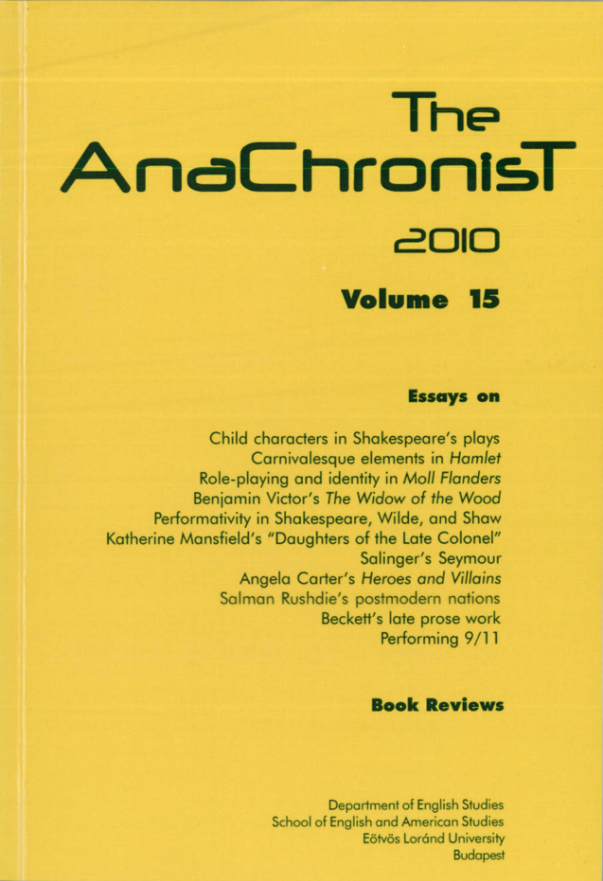The Performativity of Literature
DOI:
https://doi.org/10.53720/PNKF5872Abstract
Performativity in the philosophy of language means that certain deeds may be done using language, strictly speaking in speech, and the theory has become known as “speech-act theory,” its first theoreticians being J. L. Austin and John Searle. This article investigates the performativity of the text per se, how literature can “perform” for the reader, while also interpreting some related concepts: performance, drama, script, and intermediality through the analysis of three highly popular plays: Shakespeare’s Hamlet, Oscar Wilde’s The Importance of Being Earnest and G. B. Shaw’s Pygmalion.
Downloads
Published
01-01-2010
Issue
Section
Articles

